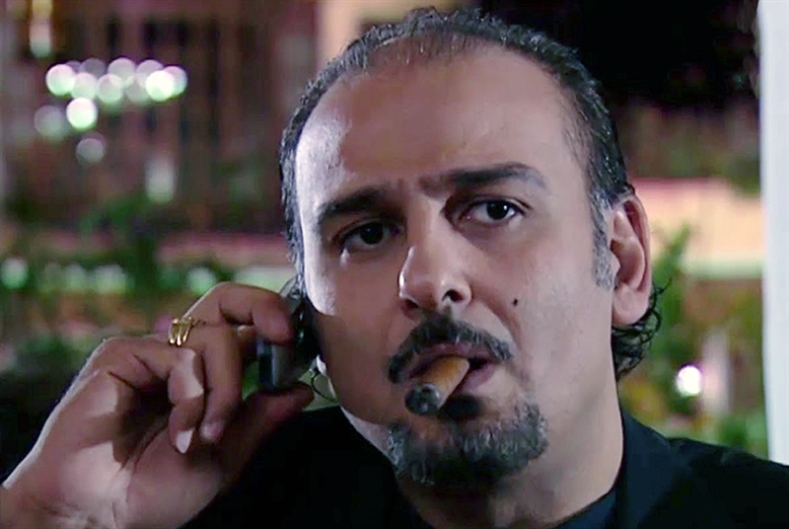Matar Abu Rabi (Jamal Suleiman) returns from self-exile. A leftist fighter, he fought against the Zionist enemy during the Beirut invasion in 1982. At that time, he was considered a martyr by all because of his disappearance and absence of his body. His girlfriend, “Khaleda” (Dhaha al-Dibs), is a Palestinian who lives in a camp with her brother (Abdul Hadi Sabbah) who lost an arm in the same raid, and her mother (Tanaa Debsi) who haunted by the obsession of returning to Palestine that still lingers in his memory. Matar, an amazing character, returns with more money and more anger. He sold everything related to revolution and struggle and replaced it with what he called “modern” ideas. Thoughts that don’t attach any importance to principles or morals, even if they wrap them in their fancy clothes. He returns to meet yesterday’s group: Safi (Ghassan Masood), an aristocratic actress, and her sister, Abla (Samar Sami), a well-known television writer; She is married to a famous lawyer (Salim Sabri). The viewer soon learns that Abla is Matar’s ex-girlfriend despite his relationship with Khaleda. The series begins by moving into its own plot, albeit humorously contradicting the idea of the good “Comte de Monte Cristo” Alexandre Dumas, with a returning avenger making him the villain this time. This whole impulse is only one side of the matter. The writer succeeds in presenting four or five similar stories together: the famous neighborhood where the university women/workers live, the natives of young people working in popular professions, the community of cultured friends /aristocratic and revolutionary background, the night world with the entertainer “Aswaar” (Shukran Murtaja) and the cabaret where you work. This creative mix showed us an amazing mosaic of society, not only Syrian, but also Arab.
The character “Matar” is the best embodiment of the idea of “Devil” in all its meanings. New to us is a magician in every sense of the word. Jamal Suleiman is good at drawing his facial features. He is reminiscent of Al Pacino as director Taylor Hackforth’s demon in The Devil’s Advocate. A demon that is seductive, terrifying and charming at the same time and, above all, wants everything and nothing at the same time. Matar is not a good person who was corrupted, he was corrupted by choice from the very beginning. For example, he decided to imitate Guevara and wear a “beret” because the eighties were persecuted by the left and the revolution, and this “trade” was popular at that time, and it was the key to his heart. “Abla” and the friendship of her sister “Safi”. He uses Al-Mutanabbi’s poetry and listens to Abdel Halim’s songs whenever he has the chance. He wants to establish an Islamic bank and release an album for the famous singer “Aswaar” (one of Shukran Murtaji’s first important roles), bluntly saying that the “random song” is catchy and amazing -amazing, despite its absurdity and superficiality (the stage of its distribution preceded the series) – songs in years). Matar uses people’s simple vices to magnify them and use them like chess pieces. Anyone who watches the series knows that he doesn’t have to spend a lot of money or pay anyone to be guilty. He just waved in front of people what they wanted (MacGuffin), so they became slaves to this desire and to him, without them realizing it.
The Wonderful Mosaic of Syrian and Arab Society
The strength of the character “Matar” does not deny that the rest of the characters are overweight. We see “Safi” (Ghassan Masoud), an aristocratic artist who remembers the stereotype of aristocratic figures who leave their society to “leave the dream” and change society, even through art, but it keeps its behavior, his nature. life and its wealth; He is accompanied by “shy / laziness”, and sometimes “cowardly”, which distinguishes this social class from others. In turn, Abla (Samar Sami), the princess of the legendary stories, is tender and rich, everyone’s dream and we learn that even “Yousef” (Abdul Hadi Sabbah) loves her. The young characters played a big role in the series, so they look like characters from a famous western/Hollywood drama: a mixture of Vladimir Nabokov’s famous Lolita and a completely feminine girl in the face of Jayne Mansfield and Sophia Loren. at one point. He does not follow Sulaf Fawakherji, who is now known to the public, but this does not stop him from showing great skill, especially when he is standing in front of a drama teacher like Ghassan Masood. Amal Arafa as Nadine in one of her first roles played a “second or third” character: she has the body of a graduate lawyer, an “ambitious” villager who loves the dream she was given by “Matar”; And against everything: laws, customs, customs and traditions for this dream. Secondary characters appear, given by the writer with strength and energy: we see the trends of Islam that begin to show themselves in society, and a fantastic struggle between the world of theater, full of ideals , and poor materially, compared to the world of small television, flooded with money.
Directly, Haitham Hakki has put in a lot of effort, especially in terms of portraying the characters accurately portrayed by Hannah. In music, the renowned composer Taher Mamli has created an impressive musical structure. In other words, creative work awaits us in every sense of the word.
* “Memories of the Next Time” in “Witness”
Source: Al-Akhbar
